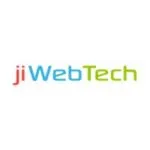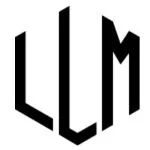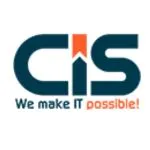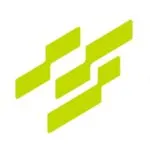
Top Transportation Software Development Companies
Welcome to our comprehensive guide to the top Transportation Software Development Companies! In today’s rapidly evolving transportation industry, technology plays a pivotal role in optimizing operations, improving efficiency, and enhancing customer experiences. Our curated list features the leading companies specializing in developing innovative software solutions tailored specifically for the transportation sector. From fleet management systems and logistics software to route optimization platforms and passenger management solutions, these companies offer a diverse range of products and services to meet the unique needs of transportation companies and organizations. With detailed reviews and insights, we empower you to make informed decisions and choose the best partner for your transportation software needs.
List of the Best Transportation Software Development Companies

-
Employees: 11 to 50
-
Min. Project amount: $1,000+
-
Country: Oklahoma City, USA

RIZZNART
-
Employees: 11 to 50
-
Min. Project amount: $1,000+
-
Country: Sandy,USA

jiWeb Technologies
-
Employees: 101 to 250
-
Min. Project amount: Undisclosed
-
Country: Mohali, India

Alpha eBook
-
Employees: 0 to 10
-
Min. Project amount: Undisclosed
-
Country: Rajkot, India

FlashIT NYC
-
Employees: 50 to 100
-
Min. Project amount: Undisclosed
-
Country: New York, USA

LLM Software
-
Employees: 11 to 50
-
Min. Project amount: Undisclosed
-
Country: Dallas, TX

Quickway Infosystems
-
Employees: 11 to 50
-
Min. Project amount: $1,000+
-
Country: Noida, India

CISIN
-
Employees: 1,000 to 9,999
-
Min. Project amount: $5,000+
-
Country: Delaware, USA

Crescaler
-
Employees: 11 to 50
-
Min. Project amount: Undisclosed
-
Country: Ambala, India

MirrorFly
-
Employees: 251 to 500
-
Min. Project amount: $1,000+
-
Country: New Cairo City, Egypt
** Buyer's Guide **
- 1. What types of transportation software solutions do these companies offer?
- 2. Can transportation software solutions be customized to meet the specific needs of my transportation company or organization?
- 3. How user-friendly are the transportation software solutions for transportation managers and drivers?
- 4. Can transportation software solutions integrate with existing systems and third-party applications used by my transportation company or organization?
1.What types of transportation software solutions do these companies offer?
Top transportation software development companies offer a variety of solutions tailored to the transportation industry, including fleet management systems, logistics software, route optimization platforms, passenger management solutions, vehicle tracking systems, and transportation management systems (TMS).
Navigating the Transportation Landscape: A Spectrum of Software Solutions
The transportation industry thrives on efficiency and organization. To keep operations running smoothly and goods or passengers moving efficiently, leading transportation software development companies offer a diverse range of solutions. Here’s a breakdown of some of the most common types:
1. Fleet Management Systems (FMS):
- Taking Control of Your Fleet: An FMS acts as the central nervous system for fleet operations. It tracks vehicle location, fuel consumption, maintenance schedules, driver behavior, and performance metrics. This empowers fleet managers to optimize routes, reduce costs, and ensure vehicle safety.
- Features: Look for functionalities like real-time GPS tracking, geofencing (setting virtual boundaries), preventative maintenance alerts, driver fatigue monitoring, and fuel usage reports.
2. Logistics Software:
- The Backbone of Supply Chains: Logistics software streamlines the movement of goods from origin to destination. It aids in tasks like inventory management, warehouse operations, order fulfillment, freight tracking, and customs clearance.
- Features: Logistics software offers functionalities for shipment planning, route optimization, carrier management, real-time shipment tracking, and performance analytics.
3. Route Optimization Platforms:
- Mapping Efficiency: Route optimization platforms leverage algorithms and real-time traffic data to create the most efficient routes for deliveries or passenger journeys. This minimizes travel time, reduces fuel consumption, and optimizes delivery schedules.
- Features: These platforms consider factors like traffic congestion, delivery time windows, vehicle capacity, and driver availability when generating optimal routes.
4. Passenger Management Solutions:
- Smoother Passenger Journeys: For passenger transportation companies (buses, trains, airlines), passenger management solutions streamline ticketing, boarding procedures, and passenger information management.
- Features: Look for functionalities like online ticket booking, mobile ticketing options, real-time travel updates, and passenger communication tools.
5. Vehicle Tracking Systems (VTS):
- Real-Time Location Awareness: VTS provide real-time tracking of vehicles, allowing fleet managers or dispatchers to monitor vehicle location, speed, and status. This enhances security, improves response times to incidents, and optimizes dispatching for deliveries or passenger pick-ups.
- Features: VTS often integrate with mapping applications for visualization and offer historical data analysis to identify trends in driver behavior or vehicle performance.
6. Transportation Management Systems (TMS):
- All-Encompassing Efficiency: A TMS offers a comprehensive solution for managing all aspects of transportation operations. It integrates functionalities from various software categories (fleet management, logistics, route optimization) into a single platform.
- Features: A TMS can encompass functionalities like shipment planning, carrier selection, real-time tracking, document management, freight cost management, and performance analytics.
Beyond these core offerings, many companies provide:
- Mobile Applications: Empower drivers, fleet managers, and passengers with mobile apps for on-the-go access to key functionalities.
- Data Analytics and Reporting: Gain valuable insights into operational efficiency, fuel consumption trends, driver behavior, and customer satisfaction through robust data analytics and reporting tools.
- Customization: Tailor software functionalities to meet the specific needs of your transportation business, whether you manage a large trucking fleet, a public transportation network, or a ride-sharing service.
By understanding the range of transportation software solutions available, you can select the ones that perfectly align with your specific needs, optimize logistics and fleet operations, enhance efficiency, and gain a competitive edge in the dynamic transportation industry.
2.Can transportation software solutions be customized to meet the specific needs of my transportation company or organization?
Yes, reputable transportation software development companies understand that each transportation company or organization has unique requirements. They typically offer customizable solutions that can be tailored to align with specific workflows, modes of transportation, and business objectives.
Customization is a key strength of leading transportation software development companies. Here’s a closer look at how they can tailor solutions to perfectly match the specific needs of your transportation company or organization:
One-Size Doesn’t Fit All: Tailoring Transportation Software to Your Unique Operation
The beauty of working with a qualified transportation software development company lies in their ability to craft solutions that complement your specific business model. Here’s how customization comes into play:
Understanding Your Business: The development process begins with a thorough needs assessment. The company will work with you to understand your specific needs, such as the mode of transportation (trucking, public transport, ride-sharing), fleet size and composition (refrigerated trucks, passenger buses), and your operational workflows. They’ll also delve into your business objectives, whether it’s optimizing delivery routes, reducing fuel costs, or enhancing passenger experiences.
Modular Design and Feature Selection: Many fleet management systems (FMS), logistics software solutions, and transportation management systems (TMS) come equipped with modular components. These components can be selected and configured to match your specific functionalities and user needs. For instance, a long-haul trucking company might prioritize features for driver fatigue monitoring and route planning with rest stop locations, while a public transportation agency might focus on functionalities for passenger information displays and real-time bus tracking.
Custom Development: For highly specialized needs or unique integrations with existing dispatch systems or warehouse management software, some companies offer custom development services. This allows them to create bespoke software features or functionalities that cater to your specific requirements. For example, a company specializing in hazardous material transportation might require a custom module for regulatory compliance tracking, while a ride-sharing service might need a custom integration with their unique fare calculation system.
Workflow Automation: The software can be customized to automate repetitive tasks within your workflows, such as generating dispatch orders, sending driver logs for compliance purposes, or notifying passengers of any delays or schedule changes.
Reporting and Analytics: Customization extends to reports and analytics functionalities. The software can be configured to generate reports that provide insights relevant to your specific operation. For instance, a trucking company might prioritize reports on fuel efficiency and driver performance, while a public transportation agency might focus on passenger ridership data and route utilization analysis.
Benefits of Customization:
- Optimized Operations: Streamlined workflows, automated tasks, and features tailored to your specific needs enhance efficiency and reduce administrative burdens on your staff.
- Improved Customer Service: Cater to the specific needs of your customers (shippers, passengers) with features that enhance their experience, such as real-time tracking or convenient mobile ticketing options.
- Competitive Advantage: Unique functionalities or integrations can differentiate your transportation company from competitors and attract new clients.
Finding the Right Fit:
Discuss Customization Options: When evaluating potential transportation software development companies, inquire about their customization capabilities. Discuss your specific needs and ensure they have the expertise to tailor their solutions accordingly.
Case Studies and References: Review case studies showcasing how the company has customized solutions for clients in your sector of the transportation industry (trucking, public transport, ride-sharing, etc.). Speak to references to gain insights into their experience with the customization process.
By partnering with a transportation software development company that prioritizes customization, you can ensure that your transportation company or organization benefits from software solutions that perfectly align with your unique needs, optimize workflows, empower your staff, and ultimately enhance your efficiency and service delivery within the transportation industry.
3.How user-friendly are the transportation software solutions for transportation managers and drivers?
The best transportation software solutions are designed to be intuitive and user-friendly, with interfaces that are easy to navigate for transportation managers and drivers alike. Look for companies that prioritize usability and provide comprehensive training and support resources.
User-friendliness is paramount in transportation software solutions, catering to both transportation managers and drivers with varying technical backgrounds. Here’s how leading developers ensure their solutions are user-friendly for everyone involved:
Bridging the Tech Gap: Making Transportation Software Easy for All Users
Effective transportation software empowers transportation managers and drivers to leverage its functionalities without getting bogged down by complex interfaces. Here’s what to look for:
Intuitive Interface Design: Clean and user-friendly interfaces are key. Menus, buttons, and functionalities should be logically organized and easy to understand for users with varying technical skills. Transportation managers should be able to access fleet performance data, manage dispatching, and generate reports efficiently. Drivers should be able to navigate routes, access delivery information, and communicate with dispatchers effortlessly.
Role-Based Dashboards: The software should present users with dashboards tailored to their specific roles. Transportation managers might see functionalities for route optimization, driver performance metrics, and fuel consumption analysis. Drivers would see navigation interfaces, delivery details, and communication tools with dispatch.
Minimal Training Requirements: Ideally, the software should be intuitive enough to learn quickly with minimal training. Look for solutions that offer clear in-app tutorials and readily available user guides to guide users through key functionalities.
Mobile Apps: Many transportation software solutions offer mobile apps specifically designed for drivers. These apps should provide functionalities like turn-by-turn navigation, access to delivery details, messaging with dispatchers, and electronic document management (e.g., bills of lading).
Multiple Support Options: Comprehensive training and support resources are essential. Look for companies that offer multiple support channels (phone, email, online chat) to address user queries and troubleshoot any issues promptly.
Enhancing Driver Experience:
Offline Functionality: Ensure the driver apps function offline in areas with limited or no internet connectivity. This allows drivers to access essential information like delivery details and navigation routes even in remote locations.
Voice Commands and Navigation: Driver apps should integrate with voice assistants to minimize distractions while driving. Drivers can access functionalities and navigate routes using voice commands, keeping their focus on the road.
Benefits of User-Friendly Transportation Software:
Increased User Adoption: Easy-to-use software ensures higher adoption rates among transportation managers and drivers, maximizing the software’s value.
Improved Efficiency: Intuitive interfaces and streamlined workflows empower users to complete tasks quickly and efficiently, saving time and reducing errors.
Enhanced Communication: User-friendly features for drivers, like messaging or electronic document management, foster better communication and transparency between drivers and dispatchers.
Improved Safety: Features like voice commands and offline functionality can minimize distractions and promote safe driving practices.
Finding the Perfect Fit:
Request Demos and Free Trials: Many companies offer free trials or demo sessions to allow you to experience the software firsthand and assess its user-friendliness for yourself and your team (managers and drivers).
User Reviews and Ratings: Read online reviews and ratings to gain insights from existing users about the software’s ease of use and any user interface challenges they encountered, specifically focusing on driver app experiences.
By prioritizing user-friendly design, comprehensive training, and ongoing support, leading transportation software development companies ensure their solutions empower both transportation managers and drivers to leverage the software’s functionalities effectively, streamline processes, improve communication, and ultimately enhance safety and efficiency within your transportation operations.
4.Can transportation software solutions integrate with existing systems and third-party applications used by my transportation company or organization?
Yes, top transportation software development companies offer solutions that are designed to integrate seamlessly with existing systems and third-party applications, such as ERP systems, GPS devices, and telematics platforms. Integration capabilities ensure smooth data exchange and interoperability.
Integration is crucial for modern transportation software solutions. Here’s how these solutions connect seamlessly with the technological ecosystem of your transportation company or organization:
Building Bridges: Streamlining Operations with Seamless Integrations
No transportation company or organization operates in isolation. Modern transportation software solutions understand this and are designed to integrate harmoniously with your existing systems and third-party applications:
Enterprise Resource Planning (ERP) Systems: Integrate your transportation software with your ERP system to streamline processes like order management, inventory control, invoicing, and accounting. This eliminates the need for manual data entry and ensures consistency across your business operations.
GPS Devices and Telematics Platforms: Gain real-time visibility into your fleet’s location, speed, engine performance, and driver behavior through integration with GPS devices and telematics platforms. This empowers you to optimize routes, improve fuel efficiency, and ensure driver safety.
Warehouse Management Systems (WMS): For companies with warehousing operations, integrate your transportation software with your WMS to optimize inventory management, picking and packing processes, and ensure on-time deliveries.
Customer Relationship Management (CRM) Systems: For companies that manage customer interactions (e.g., ride-sharing services, delivery companies), integrate your transportation software with your CRM to track customer orders, manage requests, and provide exceptional customer service.
Dispatch Systems: Many companies utilize specialized dispatch software for efficient task allocation and driver management. Ensure your transportation software integrates seamlessly with your existing dispatch systems to avoid data silos and maintain operational efficiency.
Electronic Data Interchange (EDI) Platforms: EDI platforms facilitate the secure exchange of business documents like invoices and bills of lading between your company and your partners (suppliers, customers). Integrate your transportation software with EDI platforms to streamline document management and expedite workflows.
Other Third-Party Applications: The transportation industry leverages a vast array of third-party applications for tasks like route planning, fuel tax reporting, or driver training. Look for transportation software that offers open APIs (application programming interfaces) to connect with these applications, ensuring smooth data exchange and enhanced functionalities.
Benefits of Seamless Integration:
Automated Workflows: Automate data exchange between your various systems, eliminating manual data entry and reducing processing times.
Improved Efficiency: Integrated solutions foster smoother information flow, optimizing operational efficiency and boosting productivity.
Enhanced Data Accuracy: Seamless integrations ensure data accuracy and consistency across all your platforms, minimizing errors and discrepancies.
Real-Time Visibility: Gain real-time insights into fleet performance, inventory levels, and customer orders through integrated data from various systems.
Streamlined Decision-Making: Data-driven decision making is empowered by integrations, allowing you to optimize routes, manage resources effectively, and improve customer service.
Finding the Right Integration Fit:
Evaluate API Capabilities: When evaluating transportation software development companies, inquire about their API integration capabilities. Ensure they offer open APIs that can connect with the specific systems and applications you utilize in your business.
Discuss Integration Needs: Clearly communicate your integration requirements to potential software vendors. This allows them to assess your needs and propose solutions that ensure seamless interoperability with your existing infrastructure.
By prioritizing integration capabilities, you can ensure that your new transportation software solution integrates seamlessly with your existing systems and third-party applications. This fosters a unified technological ecosystem that streamlines operations, enhances efficiency, and empowers you to deliver exceptional service to your customers and manage your transportation network effectively.



